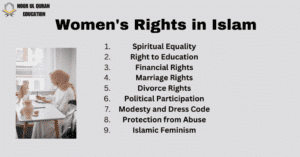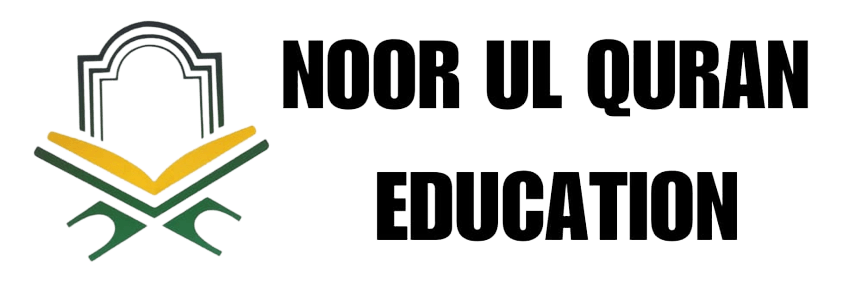Introduction
Women in Islam played a significant role in history and their rights have been subject to misunderstanding. It’s necessary to approach the topic of women in Islam with an open mind. In Islam’s early days, Prophet Muhammad (PBUH) stressed being kind to women and acknowledging their rights.
Prophet Muhammad (PBUH) said that;
"The best among you are those who are best to their wives,"
The most important discussion about women in Islam is about the concept of the Hijab and modest dress. Muslim women view it as a choice to express their faith as their identity. Wearing a Hijab is a personal decision that varies among Muslim women.
Historical Perspectives on Women in Islam
To understand the historical perspectives on women in Islam, we must explore the status of Women within Islam and the treatment of women during the Arabian Peninsula in the 7th Century CE, which was transformed by the practices of Prophet Muhammad (PBUH) and by the Quranic teachings.
- Before the advent of Islam, women had limited rights, and female infanticide was common but the Quran condemned this practice. The teachings of the Quran introduced significant changes in the status of women.
- Prophet Muhammad (PBUH) improved the status of women. He promoted education for women and advocated for their rights. He encouraged women’s involvement in trade.
- Women participated in religious, economic, and social life in the early ages. They served as scholars, poets, or warriors in some cases.
The Role of Women in Islamic Society
Religion, history, society, and culture influence the importance of women in Islamic society. While discussing the role of Women in Islamic Society, we can explore common principles. These include,
Spiritual Equality:
Men and Women have equal rewards and responsibilities and worship. Islam teaches the equality of men and women.
In the Quran:
"Both men and women are created from a single soul." (Surah Al-Nisa 4:32)
Family and Household:
Women in Islamic societies have played an important role in the family and household. They are responsible for raising their children and nurturing them and they also provide emotional support to their family.
Economic Contributions:
Women in Islamic Society also provided economic contributions through agriculture and trade. The Prophet Muhammad’s wife Hazrat Khadija was also a successful businesswoman.
Modesty and Dress Code:
The most important discussion about women in Islamic society is about the concept of the Hijab and modest dress. Muslim women view it as a choice to express their faith as their identity. Wearing a Hijab is a personal decision that varies among Muslim women.
Education:
The Quran encourages seeking knowledge and education for both men and women. Thus there are rights for women to seek education in Islamic society.
Legal Rights:
Islamic society provides legal rights for women. These rights include financial support, protection and safety, rights to inheritance, and initiation of divorce in some circumstances.
Women’s Rights in Islam
 The topic of women’s rights in Islam is complex and often misunderstood. There are various rights granted to women in Islam. These include;
The topic of women’s rights in Islam is complex and often misunderstood. There are various rights granted to women in Islam. These include;
- Spiritual Equality
- Right to Education
- Financial Rights
- Marriage Rights
- Divorce Rights
- Political Participation
- Modesty and Dress Code
- Protection from Abuse
- Islamic Feminism
Understanding women’s rights in Islam requires an approach that acknowledges both the rights granted by Islamic teachings. Islamic societies fully realize and protect women’s rights.
Islamic Feminism and Its Evolution
Islamic Feminism is a dynamic movement that means the advocacy of women’s rights based on the equality of gender. It has its roots in Islamic societies and Islamic scholars worked to resolve issues regarding gender inequality. Here, we explore the evaluation of Islamic Feminism.
Islamic Feminism began to take place in the mid-20th Century because the majority of countries faced social and political changes. Thus, this movement aimed to challenge interpretations of Islamic teachings and advocate for women’s rights.
Islamic Feminism recognizes that gender inequality intersects with race and caste, and supports women’s rights based on gender and class equality. It leads to various discrimination that affect Muslim women. Islamic feminism continues to evolve, responding to new challenges and opportunities.
Women’s Participation in Religious Practices
The role of women’s participation in religious practices varies across different cultures and traditions within Islam. Here we explore women’s participation in religious practices;
Reading and Recitation of the Quran:
Encouragers urge Muslim women to recite and memorize the Quran. Many women engage in Quranic study and memorization. Read and Recite the Quran through our Quran Recitation Course.
Prayer:
In Islam, both men and women must offer five prayers. Women can perform prayer at home or in a mosque. Some mosques have separate prayer areas for women but women don’t need to perform prayer in a mosque.
Fasting:
Both men and women must fast from dawn to dusk during the month of Ramadan. Excuse women who cannot fast because of health reasons, but they must make up for missed fasts later.
Pilgrimage (Hajj and Umrah):
Both men and women must perform Hajj and Umrah. But there are some conditions and regulations regarding women’s modest dress. Women can undertake Hajj and Umrah at any time of the year.
Teaching and Religious Education:
Muslim women can also serve as a teacher and serve religious education. They play a crucial role in the education generation about Islamic beliefs.
Learn more about the Pillars Of Islam.
Women in Islamic History: Notable Figures
Throughout Islamic history, some notable women made significant contributions in various fields.
Khadijah bint Khuwaylid (555-619 CE):
She was the first wife of Prophet Muhammad (PBUH) and a successful businesswoman. She supported Prophet Muhammad (PBUH) and spread Islam as a partnership with Him.
Aisha bint Abi Bakr (613-678 CE):
Aisha was not only one of the Prophet Muhammad’s wives but also a renowned scholar and jurist. She made a respective authority in Islamic jurisprudence.
Ibn al-Arabi’s Daughter (13th century):
She was the daughter of a famous Islamic philosopher. She was a respected scholar in her own right and contributed to the study of Sufism and mysticism.
Rabia al-Adawiyya (713-801 CE):
Rabia, a prominent Sufi saint, poet, and mystic, is renowned for her profound spirituality and devotion to God.
Benazir Bhutto (1953-2007):
Benazir Bhutto was the first female prime minister of Pakistan. She had a significant impact on politics in the country. This is notable because Pakistan is not an entirely Islamic state.
Conclusion:
The status and role of women are dynamic and influenced by various factors. While some women face challenges on the other hand some work actively towards achieving greater gender equality. Understanding the complexities of this topic requires an open mind that takes into account the diversity of Muslim experiences and interpretations.
Note: To want knowledge about different Arabic phrases then must read Allahu Akbar, Alhamdulillah, MashaAllah, and SubhanAllah.

As the administrator of the Noor-ul-Quran website, I am dedicated to fostering a platform that serves as a beacon of knowledge and enlightenment for all seekers of the Quranic wisdom. With a passion for both technology and spirituality, I strive to maintain the integrity and authenticity of the content presented on this platform.



